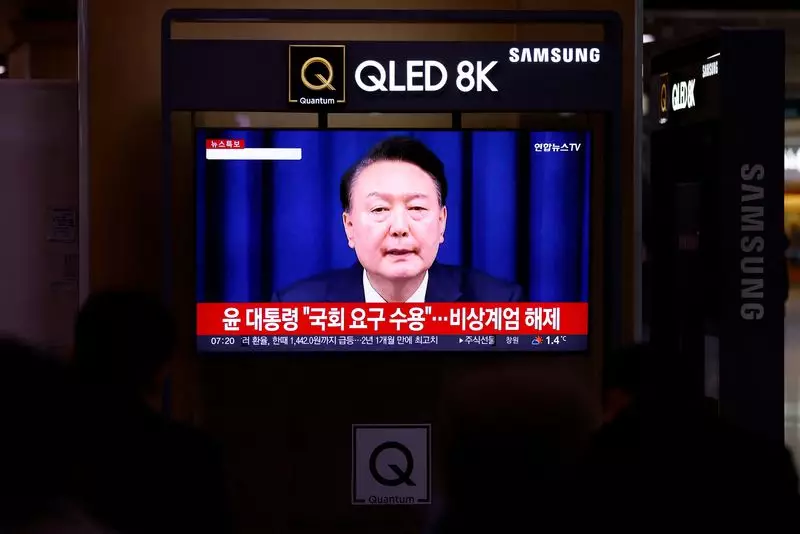South Korea is currently experiencing a period of significant political instability that has sent shockwaves through its financial markets. The unexpected declaration of martial law by President Yoon Suk Yeol—only to be reversed hours later—has triggered immediate reactions from investors, causing a sharp downturn in the stock market and the national currency. In this article, we will analyze the current situation, its implications for foreign investment, and the overall economic outlook for the country.
On an ordinary day in financial markets, unpredictability often looms as a risk factor. However, political upheavals tend to elevate this unpredictability to unforeseen heights. The announcement of martial law and its swift retraction rattled investors and caused the benchmark Kospi Index to plummet by nearly 2%, reflecting widespread panic. The South Korean won also plummeted to a two-year low, although it displayed signs of stabilization the following day. This scenario represents more than merely a minor market fluctuation; it indicates entrenched uncertainty that could adversely affect the long-term economic environment in South Korea.
Investors typically view political stability as a cornerstone of a strong financial market. The ongoing political crisis raises serious doubts about the country’s leadership and governance, which could lead to a hesitance among both domestic and foreign investors. With the prospect of impeachment looming, many are reevaluating their stakes in Korean assets, fearing that prolonged instability may detract from investor confidence.
Comments from market participants reveal a shared sentiment of apprehension regarding the investment landscape in South Korea. Portfolio manager Sat Duhra articulates this caution well, stating that the allure of attractive valuations in the market isn’t enough to compel investment in such an uncertain environment. This so-called “Korea discount”—the elevated risk premium associated with investing in South Korean assets—seems to be exacerbated by the political situation. Investors are skeptical. Many prefer stability offered by markets in China rather than venturing into the turmoil in South Korea.
Daniel Tan, another portfolio manager, highlights that the martial law incident could deepen the existing “Korean Discount.” When the KOSPI trades at just 0.8 times the estimated one-year forward book value compared to 3x for the MSCI World Index, it indicates that investors expect a significantly higher risk to engage with Korean assets. In an environment already characterized by low demand, any added uncertainty can serve to deter investment further.
Financial experts are cautious not to overlook the broader economic landscape. Robert Carnell of ING underscores that the domestic economy was already weak, and this political turmoil introduces additional layers of uncertainty. Such unpredictability may prompt the Bank of Korea (BOK) to reassess its monetary policies to provide necessary liquidity to the market. BOK’s potential intervention in foreign exchange markets is indicative of concerns over currency stability, which is essential for maintaining investor confidence.
Frances Cheung from OCBC Bank notes that the initial movement in USD/KRW was a “knee-jerk reaction,” indicating that while there may be short-term fluctuations, the long-term economic fundamentals of South Korea could remain intact as long as the currency stabilizes. This highlights the delicate balance that policymakers must strike: fostering economic stability while managing political risk.
As the political situation in South Korea progresses, the general consensus among investors seems to gravitate toward cautious optimism. While immediate effects on stock markets are significant, experts like David Chao of Invesco suggest that, barring any further escalations, the current turmoil may merely represent a hiccup in the larger economic landscape.
Investors must be vigilant as the evolving scenario could either provide opportunities for investments at lower valuations or serve as a wake-up call regarding the necessity for political reforms. The outcome is still uncertain, and stakeholders—from local entrepreneurs to international investors—are left grappling with the implications of shifting political tides.
The volatility of South Korea’s share market, coupled with looming political challenges, reaffirms the notion that political stability is essential for economic prosperity. As markets react to these developments, one must remain observant of the broader implications on foreign investment and the potential reshaping of economic strategies in the region.

